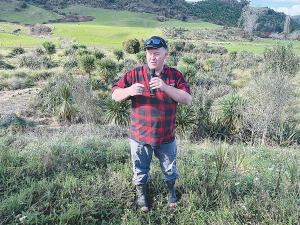OPINION: Farmers are facing many more risks than ever before. Rapidly rising costs for one, but the biggest long-term risk, without a doubt, is climate change.
Arguing about whether it is human induced or not achieves nothing.
It is happening under our noses and furthermore, politicians have decided on our behalf that responding to it is important. In the Waikato we’re getting supercharged rainfall events in winter, and come summer, it’s desertdry. The question is, how can we future-proof our businesses as this worsens?
Insurance companies have long offered ‘business interruption’ or ‘business continuity’ cover to keep farmers operating or paying wages in the case of major disasters, earthquakes or storms.
Expanding traditional business continuity insurance to include climate change events will be welcomed. Pricing this risk will be a challenge for underwriters, but assuming climate change significantly raises the cost of food, farmers should be able to afford the increasing premiums that will come with worsening climate change.
This of course shouldn’t leave us sitting on our backsides nothing for the climate crisis. We know that international regulators won’t be wowed by per unit efficiency arguments where NZ is “top of the charts”.
They will demand a reduction in total emissions.
So our co-operatives, industry bodies and SOE’s should continue to breed cows that burp less, encourage the uptake of hydrogen powered tractors and develop methane reducing feed additives.
In the meantime, we farmers are stuck with focusing on mitigation rather than reduction with regards to our emissions.
One of the simplest ways to do this is the expansion of riparian areas along waterways with native plants. Natives look great, encourage bird and marine life (biodiversity), keep waterways clean and provide a permanent carbon sink.
Short rotation pine trees planted purely for carbon sinks will eventually fall over and rot, releasing their carbon back into the atmosphere. The government should be courageous and lift the carbon credit value of natives to equivalence with radiata, they might be surprised at farmer response.
Gray Baldwin is a life-long South Waikato farmer with more than a decade of senior governance experience with Farmlands, LIC, Ballance Agri-Nutrients and Trinity Lands. He is currently running for the FMG board of directors.











